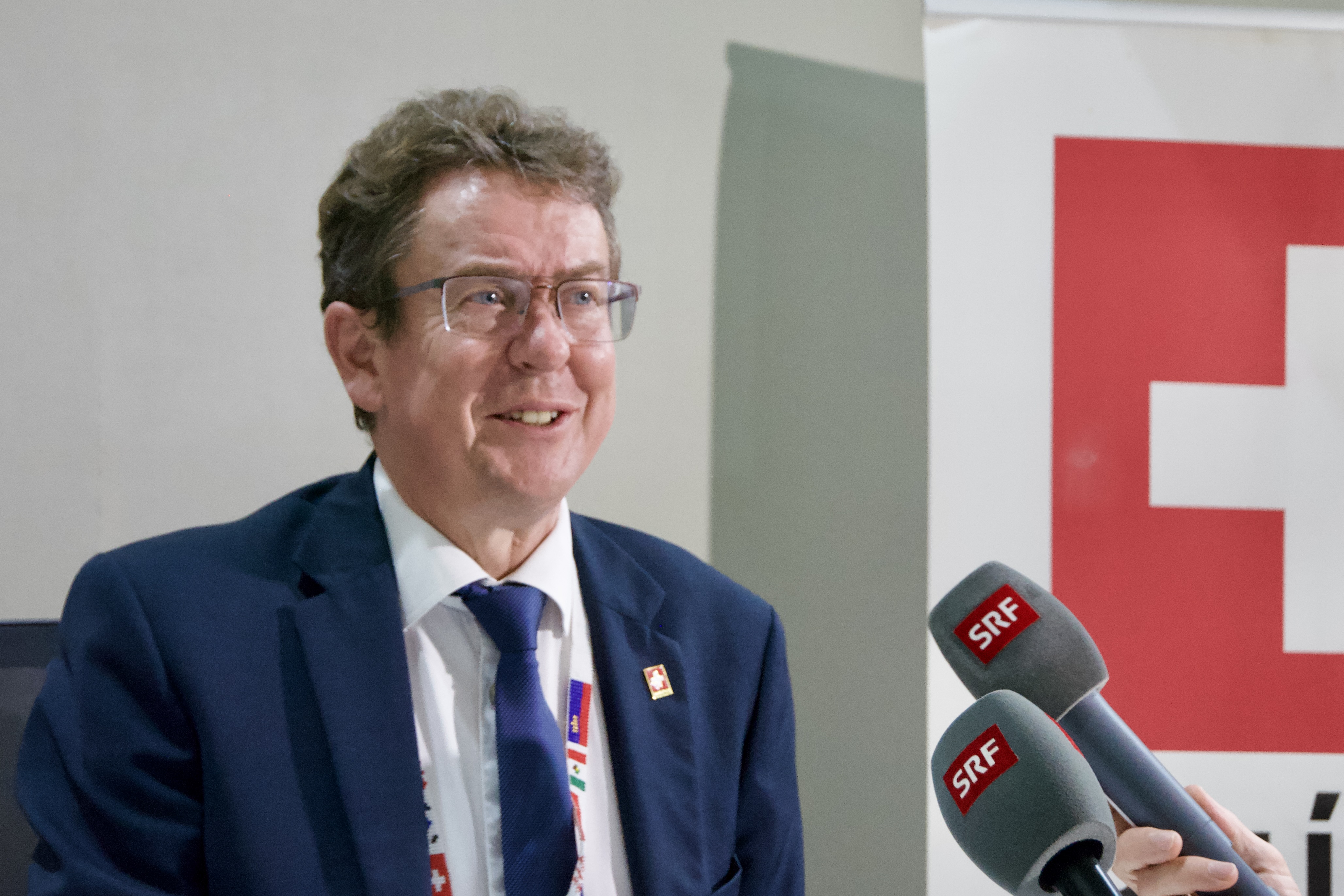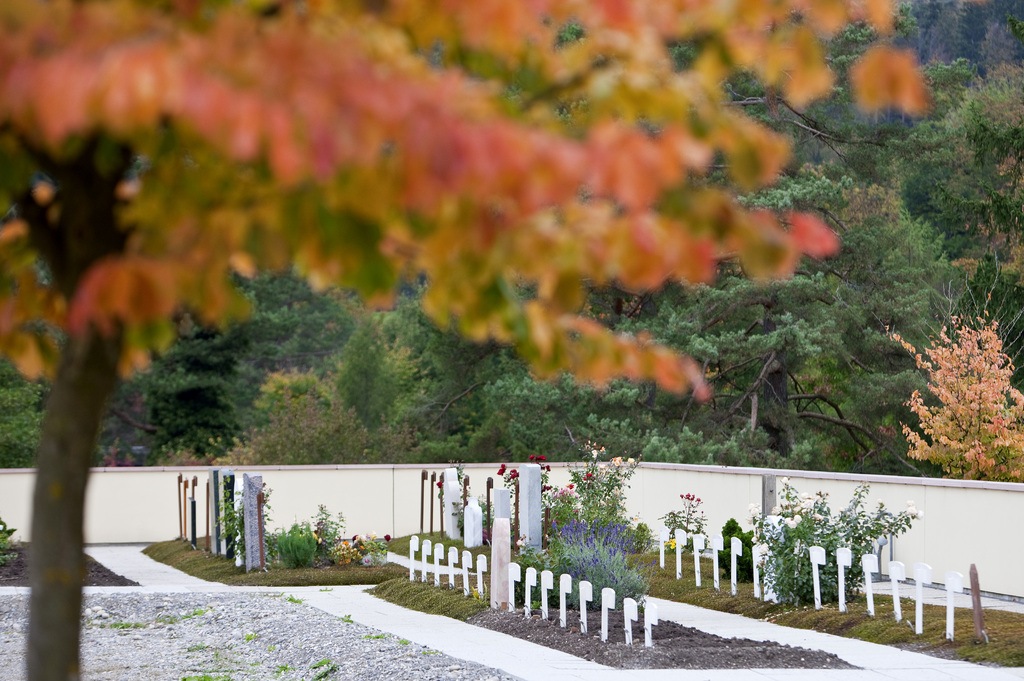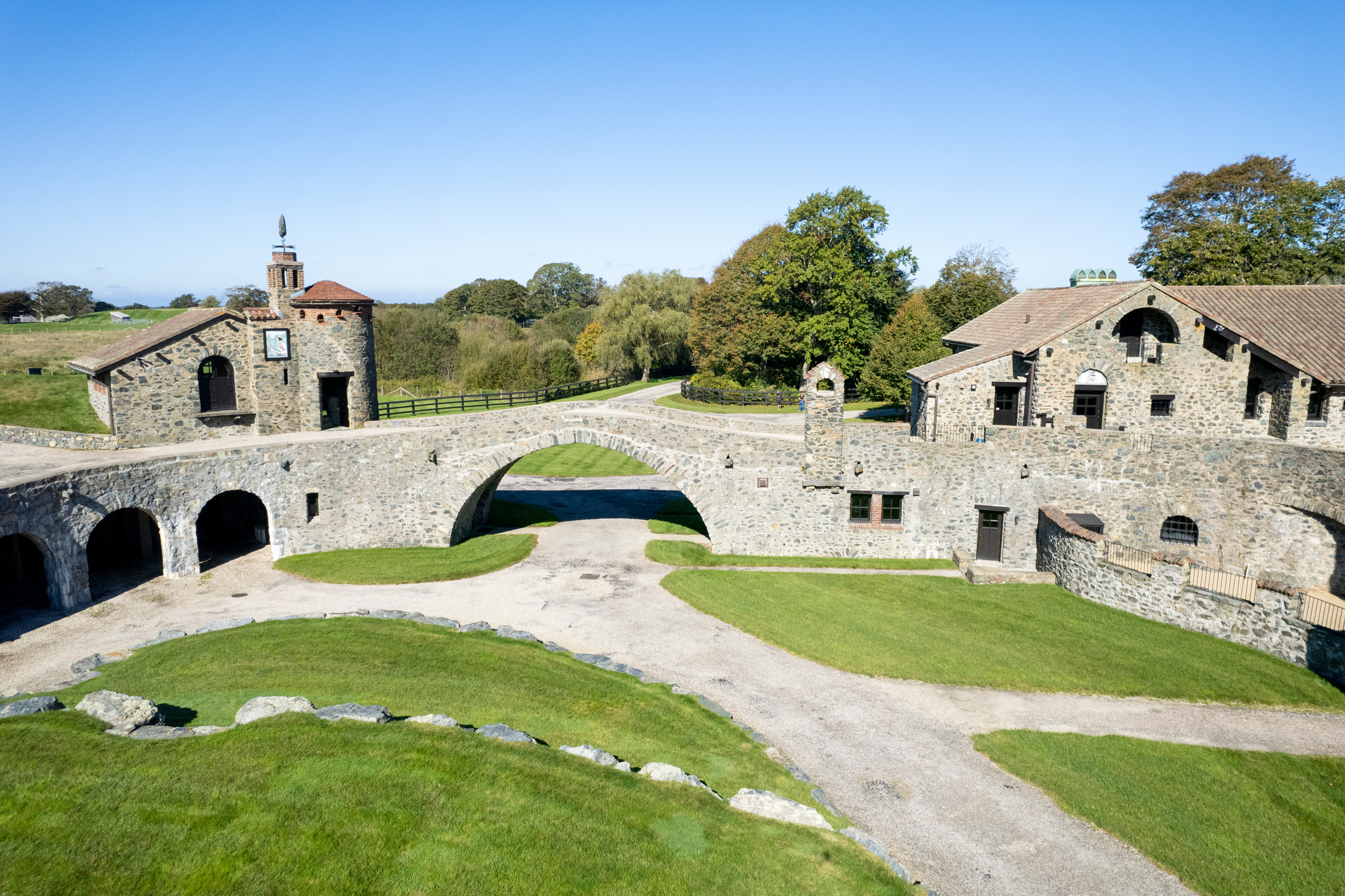
Muslim cemeteries face generation gap

More Swiss cemeteries are setting aside special Muslim plots, but controversially these remain largely empty, with older Muslims preferring to be buried in the land of their birth. That situation could change with the younger generation.
Since 2000, about 15 cities, mostly in German-speaking parts of Switzerland, have created Muslim sections in their cemeteries. Debate over whether this was necessary erupted last spring when several German-speaking media outlets reported that few of these plots were being used.
The Lucerne youth chapter of the rightwing Swiss People’s Party called for the Muslim section of one municipal cemetery to be shut as only ten burials had taken place since it was set aside in 2008. In the canton of St Gallen, the same party opposed a new law allowing local cemeteries to reserve plots for Muslims. Despite this, the law was passed in June.
Meanwhile, in Biel, less than a year after the city reserved 800 plots for Muslims, the first burial in the section was also cause for concern.
But religious experts, Muslim residents and even cemetery directors, are calling criticism of these special sections short-sighted.
They told local newspapers that it was only a matter of time before Muslim plots would be in high demand. Today’s older generation of Muslims are immigrants and usually want to be buried in the country where they born, the younger generations are expected to have a different outlook.
Generational difference
The Association of Islamic Organisations in Zurich estimates that at present more than 90 per cent of deceased Muslims are repatriated to their country of origin.
“People who die today still have very strong ties to their native countries,” explained Muhammad Hannel, spokesperson of the association. “This will change with the next generation or in about 25 years.”
Andreas Tunger-Zanetti, specialist in Islam and coordinator of Lucerne University’s Centre for the Study of Religions, agrees. “There is no question that the number of Muslim burials in Switzerland will rise as the younger generation, who were born here and who have their roots here, grow old.”
The right to a decent burial is guaranteed under article seven of the federal constitution, which protects human dignity.
As Tunger-Zanetti explains, the mandate is clear, but its interpretation and application is subject to political interpretation. “In my opinion, providing adequate infrastructure is also part of integration policy.”
Growing Muslim population
In reporting on its newly passed burial law, St Gallen’s cantonal government explained that providing burial space for local Muslims was necessary and that not doing so would negatively impact the community’s ability to integrate.
Additionally, the cantonal government explained that as the Muslim population grew, so too would the number of burials conducted in accordance with the faith. According to national research on religion published in early July, the population of Muslims living in Switzerland is on the rise.
Based on the 2000 federal census, there were 310,807 Muslims living in the country at the turn of the century, or 4.27 per cent of the population, versus just 0.26 per cent of the population in 1970.
Adapting burial rites
The canton of Zurich, which counted some 102,000 Muslims in 2007, or eight per cent of the population, has also seen heated debate over Islamic cemeteries. The city of Zurich dedicated a section of one of its cemeteries in Witikon to Muslim burials in 2004. A second one will be opened in Winterthur this autumn.
“After struggling for decades, we have accomplished something very important. Since 2004, 131 people have been buried in the Witikon cemetery in accordance with Muslim rites and there are only 320 Muslim burial plots available,” explained Issa Gerber, member of the Association of Islamic Organisations in Zurich’s cemetery commission.
The section in Witikon measures 2,520 square metres. The section in Winterthur will be much bigger with 380 plots available across 3,700 square metres.
The Muslim community has adapted its own rites to the situation in Switzerland. The religion states the body should be wrapped in a shroud, without a casket, and buried in a place reserved solely for one person.
However, Muslims living in Switzerland have accepted using caskets and the possibility of multiple burials in the same grave (as is common Swiss practice), agreeing for up to three remains going into graves at 20-year intervals in Zurich.
In another compromise in a cemetery in La-Chaux-de-Fonds, in canton Neuchâtel, bodies are not buried in the direction of the Mecca, as required by Muslim tradition, but the head can be facing southeast.
A “storm in a teacup”
In Zurich, as in Liestal in canton Basel Country, Muslim burials have not led to any complaints. In fact, a municipal representative from Liestal called the debate a “storm in a teacup” in the Basler Zeitung newspaper.
But opposition to new projects in a commune can be fierce. In Köniz, in canton Bern, the local executive branch rejected the establishment of a special burial section for Muslims, but the legislative branch accepted it. “With the exception of Zurich and Winterthur, communes in the canton of Zurich do not make life easy for us,” said Gerber.
According to Tunger-Zanetti, Muslims could always establish private cemeteries, like the Jewish community. “But that would be expensive. You have build a chemical facility to treat the remains and it doesn’t seem like this option would be accessible for the Muslim community.”
After death, the body of a Muslim person must be washed within 24 hours and buried within 48 hours in order for the soul to leave the body and to respect of the dignity of the deceased.
If the family decides to repatriate the body, they must act quickly. A forensic doctor must seal the coffin and travel authorisation from the embassy is required. To protect the identity of the deceased, the coffin is wrapped in burlap for the journey. The whole process can cost thousands of Swiss francs.
The tombs should be oriented toward Mecca, the remains wrapped in a shroud and not placed in a casket. But compromises have been made made for some of these aspects in western societies.
The first Islamic cemetery was established in 1978 in Petit-Saconnex, in canton Geneva. The question of who had the right to be buried there has been debated for years. Today, this cemetery is full.
In late 2007, the mayor of Geneva inaugurated a special section of the cemetery of St George for Jewish and Muslim communities.
Muslim burial sections have been opened in the following cities (this list is not exhaustive): Basel (2000), Bern (2000), Lugano (2002), Zurich (2004), Liestal (Basel Country, 2007), Sissach (Basel Country, 2008), Pratteln (Basel Country, 2009), Thun (2009), Olten (date unknown), La Chaux-de-Fonds (2011) and Biel (2011). Winterthur will be added to the list this autumn.
In the canton of Bern, Locle, Neuchâtel and Köniz also have plans to open special Muslim burial sections. Discussions are ongoing in Schlieren and Dietikon (Zurich), where the Muslim population is over 10%.
The canton of St Gallen passed a law last June allowing local cemeteries to establish their own Muslim burial sections.
In 2000, 310,807 Muslims lived in Switzerland, representing about 4.26% of the population. For every 100 Muslims, 57 come from former Yugoslavian countries and 20 are of Turkish origin. Nearly 80% of Muslims living in Switzerland practice a European form of Islam. For them, religion is a private affair and matters related to the state are secular.
There are more Muslims in German-speaking parts of Switzerland (about 4.7% of the population) compared with the French (3.6%) and Italian-speaking parts (1.8%).
Source: National Research Programme on religious communities in Switzerland
(Translated from French by Rachel Marusak Hermann)

In compliance with the JTI standards
More: SWI swissinfo.ch certified by the Journalism Trust Initiative



























You can find an overview of ongoing debates with our journalists here . Please join us!
If you want to start a conversation about a topic raised in this article or want to report factual errors, email us at english@swissinfo.ch.